155 papers:
 PLDI-2015-DingAVSOA #algorithm
PLDI-2015-DingAVSOA #algorithm- Autotuning algorithmic choice for input sensitivity (YD, JA, KV, XS, UMO, SPA), pp. 379–390.
 CSCW-2015-Tufekci #algorithm
CSCW-2015-Tufekci #algorithm- Algorithms in our Midst: Information, Power and Choice when Software is Everywhere (ZT), p. 1918.
 HIMI-IKC-2015-MatsudaOHT #analysis #automation #generative #multi #problem #testing #using
HIMI-IKC-2015-MatsudaOHT #analysis #automation #generative #multi #problem #testing #using- Analysis of Multiple-Choice Tests Through Erroneous Choices Using a Technique of Automatic Problem Generation (NM, HO, TH, HT), pp. 362–369.
 RecSys-2015-GrausW #elicitation #experience #user interface
RecSys-2015-GrausW #elicitation #experience #user interface- Improving the User Experience during Cold Start through Choice-Based Preference Elicitation (MPG, MCW), pp. 273–276.
 RecSys-2015-WaymanM
RecSys-2015-WaymanM- Nudging Grocery Shoppers to Make Healthier Choices (EW, SM), pp. 289–292.
 HT-2014-Santos-NetoPAR #data flow #on the #optimisation
HT-2014-Santos-NetoPAR #data flow #on the #optimisation- On the choice of data sources to improve content discoverability via textual feature optimization (ESN, TP, JMA, MR), pp. 273–278.
 ICALP-v2-2014-CooperER #distributed #power of
ICALP-v2-2014-CooperER #distributed #power of- The Power of Two Choices in Distributed Voting (CC, RE, TR), pp. 435–446.
 CHI-2014-ChiravirakulP #question
CHI-2014-ChiravirakulP #question- Choice overload in search engine use? (PC, SJP), pp. 1285–1294.
 CHI-2014-HsuYYHCB #persuasion
CHI-2014-HsuYYHCB #persuasion- Persuasive technology for overcoming food cravings and improving snack choices (AH, JY, YHY, MSH, CC, AEB), pp. 3403–3412.
 CHI-2014-LoeppHZ #collaboration #elicitation #recommendation
CHI-2014-LoeppHZ #collaboration #elicitation #recommendation- Choice-based preference elicitation for collaborative filtering recommender systems (BL, TH, JZ), pp. 3085–3094.
 DUXU-ELAS-2014-VilarDRNV #artificial reality #case study #using
DUXU-ELAS-2014-VilarDRNV #artificial reality #case study #using- A Pilot Study Using Virtual Reality to Investigate the Effects of Emergency Egress Signs Competing with Environmental Variables on Route Choices (EV, ED, FR, PN, EV), pp. 369–377.
 HIMI-AS-2014-KoyamaYKT #named
HIMI-AS-2014-KoyamaYKT #named- ChoiceLog: Life Log System Based on Choices for Supporting Decision-Making (JK, KY, IK, YT), pp. 172–183.
 SCSM-2014-WhittyDCH #image #online
SCSM-2014-WhittyDCH #image #online- Image Choice to Represent the Self in Different Online Environments (MTW, JD, SC, DH), pp. 528–537.
 ICPR-2014-OsogamiK
ICPR-2014-OsogamiK- A Hierarchical Bayesian Choice Model with Visibility (TO, TK), pp. 3618–3623.
 SIGIR-2014-KellyRT #constraints #information retrieval #research
SIGIR-2014-KellyRT #constraints #information retrieval #research- Choices and constraints: research goals and approaches in information retrieval (part 1) (DK, FR, JT), p. 1283.
 SIGIR-2014-KellyRT14a #constraints #information retrieval #research
SIGIR-2014-KellyRT14a #constraints #information retrieval #research- Choices and constraints: research goals and approaches in information retrieval (part 2) (DK, FR, JT), p. 1284.
 SAC-2014-PatanaikZK #estimation #parametricity #simulation
SAC-2014-PatanaikZK #estimation #parametricity #simulation- Parameter estimation and simulation for one-choice Ratcliff diffusion model (AP, VZ, CKK), pp. 3–7.
 OSDI-2014-VenkataramanPAFS #clustering #power of #scheduling
OSDI-2014-VenkataramanPAFS #clustering #power of #scheduling- The Power of Choice in Data-Aware Cluster Scheduling (SV, AP, GA, MJF, IS), pp. 301–316.
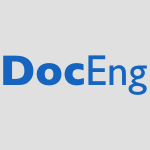 DocEng-2013-PinkneyBB #readability
DocEng-2013-PinkneyBB #readability- No need to justify your choice: pre-compiling line breaks to improve eBook readability (AJP, SRB, DFB), pp. 237–240.
 ITiCSE-WGR-2013-SandersACEGJLMP #multi #repository
ITiCSE-WGR-2013-SandersACEGJLMP #multi #repository- The Canterbury QuestionBank: building a repository of multiple-choice CS1 and CS2 questions (KS, MA, TC, SHE, MG, CJ, RL, RM, EAP, JS), pp. 33–52.
 CHI-2013-RonenRJT #how #question
CHI-2013-RonenRJT #how #question- Taking data exposure into account: how does it affect the choice of sign-in accounts? (SR, OR, MJ, DT), pp. 3423–3426.
 CSCW-2013-GaoHZ #how #network #social
CSCW-2013-GaoHZ #how #network #social- Closure vs. structural holes: how social network information and culture affect choice of collaborators (GG, PJH, CZ), pp. 5–18.
 DUXU-WM-2013-ShenP #performance
DUXU-WM-2013-ShenP #performance- Re-thinking Bookmark Management — Less Choice Is More Efficient (STS, SDP), pp. 304–312.
 CIKM-2013-ZhangLL #performance #privacy #robust #streaming
CIKM-2013-ZhangLL #performance #privacy #robust #streaming- An efficient and robust privacy protection technique for massive streaming choice-based information (JZ, XL, YL), pp. 1169–1172.
 SAT-2013-DellertZK #interactive #named
SAT-2013-DellertZK #interactive #named- MUStICCa: MUS Extraction with Interactive Choice of Candidates (JD, CZ, MK), pp. 408–414.
 DATE-2012-Al-HashimiM #framework #hardware #question #verification
DATE-2012-Al-HashimiM #framework #hardware #question #verification- Accelerators and emulators: Can they become the platform of choice for hardware verification? (BMAH, RM), p. 430.
 DATE-2012-SuriBE #approach #multi #problem #scalability
DATE-2012-SuriBE #approach #multi #problem #scalability- A scalable GPU-based approach to accelerate the multiple-choice knapsack problem (BS, UDB, PE), pp. 1126–1129.
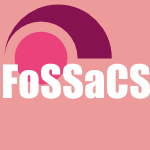 FoSSaCS-2012-PetersN #encoding #question
FoSSaCS-2012-PetersN #encoding #question- Is It a “Good” Encoding of Mixed Choice? (KP, UN), pp. 210–224.
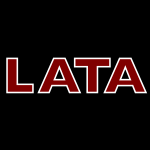 LATA-2012-GeffertGP #automaton
LATA-2012-GeffertGP #automaton- Two-Way Automata Making Choices Only at the Endmarkers (VG, BG, GP), pp. 264–276.
 CHI-2012-TangHS #social
CHI-2012-TangHS #social- The implications of offering more disclosure choices for social location sharing (KPT, JIH, DPS), pp. 391–394.
 CHI-2012-ZhuHL #comprehension #online #social
CHI-2012-ZhuHL #comprehension #online #social- To switch or not to switch: understanding social influence in online choices (HZ, BAH, YL), pp. 2257–2266.
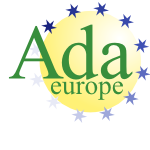 AdaEurope-2012-PoonCT #classification
AdaEurope-2012-PoonCT #classification- Choices, Choices: Comparing between CHOC’LATE and the Classification-Tree Methodology (PLP, TYC, THT), pp. 162–176.
 ICSE-2012-YskoutSJ #architecture #question #security
ICSE-2012-YskoutSJ #architecture #question #security- Does organizing security patterns focus architectural choices? (KY, RS, WJ), pp. 617–627.
 LICS-2012-Herbelin #logic #proving
LICS-2012-Herbelin #logic #proving- A Constructive Proof of Dependent Choice, Compatible with Classical Logic (HH), pp. 365–374.
 DAC-2011-Singh #challenge
DAC-2011-Singh #challenge- Lithography at 14nm and beyond: choices and challenges (VS), p. 459.
 CSEET-2011-BrownNOKL #game studies
CSEET-2011-BrownNOKL #game studies- Hard choice: A game for balancing strategy for agility (NB, RLN, IO, PK, EL), p. 553.
 ICPC-J-2009-PoonTTK11 #category theory #experience #identification #testing
ICPC-J-2009-PoonTTK11 #category theory #experience #identification #testing- Contributions of tester experience and a checklist guideline to the identification of categories and choices for software testing (PLP, THT, SFT, FCK), pp. 141–163.
 CHI-2011-BrumbyDJG #how #performance
CHI-2011-BrumbyDJG #how #performance- Fast or safe?: how performance objectives determine modality output choices while interacting on the move (DPB, SCED, CPJ, JJG), pp. 473–482.
 CHI-2011-LeeKF #behaviour #design #mining #persuasion
CHI-2011-LeeKF #behaviour #design #mining #persuasion- Mining behavioral economics to design persuasive technology for healthy choices (MKL, SBK, JF), pp. 325–334.
 CHI-2011-LelisH #how #online #people #rating
CHI-2011-LelisH #how #online #people #rating- Informing decisions: how people use online rating information to make choices (SL, AH), pp. 2285–2294.
 CSCW-2011-AmesGKS #comprehension #social
CSCW-2011-AmesGKS #comprehension #social- Understanding technology choices and values through social class (MGA, JG, JK, MS), pp. 55–64.
 SIGAda-2011-Rogers #safety
SIGAda-2011-Rogers #safety- Language choice for safety critical applications (JSR), pp. 81–90.
 ICEIS-v1-2011-YamaguchiDF #guidelines #process #visualisation
ICEIS-v1-2011-YamaguchiDF #guidelines #process #visualisation- Guidelines for the Choice of Visualization Techniques Applied in the Process of Knowledge Extraction (JKY, MMD, CF), pp. 183–189.
 ICEIS-v2-2011-FanLL #performance #set
ICEIS-v2-2011-FanLL #performance #set- Influencing Factors of High-speed Railway Passengers’ Travel Choice based on Rough Set (YF, JL, CL), pp. 213–217.
 ICEIS-v2-2011-LongLG #algorithm #performance #predict #search-based
ICEIS-v2-2011-LongLG #algorithm #performance #predict #search-based- High-speed Railway based on Genetic Algorithm for Prediction of Travel Choice (CL, JL, YG), pp. 26–31.
 ICEIS-v2-2011-MeiJS #fuzzy #logic
ICEIS-v2-2011-MeiJS #fuzzy #logic- Passenger Travel Choice Prediciton based on Fuzzy Logic (LM, LJ, KS), pp. 163–166.
 ICEIS-v3-2011-Liu
ICEIS-v3-2011-Liu- The Impact of Display Incompleteness on Customers’ Choice (ZL), pp. 550–553.
 SIGIR-2011-LawBH
SIGIR-2011-LawBH- The effects of choice in routing relevance judgments (EL, PNB, EH), pp. 1127–1128.
 SIGIR-2011-YangLSZZ #collaboration #learning #recommendation #using
SIGIR-2011-YangLSZZ #collaboration #learning #recommendation #using- Collaborative competitive filtering: learning recommender using context of user choice (SHY, BL, AJS, HZ, ZZ), pp. 295–304.
 GTTSE-2011-ErwigW #calculus #programming
GTTSE-2011-ErwigW #calculus #programming- Variation Programming with the Choice Calculus (ME, EW), pp. 55–100.
 ECSA-2010-BerniniT #architecture
ECSA-2010-BerniniT #architecture- Explaining Architectural Choices to Non-architects (DB, FT), pp. 352–359.
 QoSA-2010-BirkmeierO #architecture #development #diagrams #empirical #process #uml #usability
QoSA-2010-BirkmeierO #architecture #development #diagrams #empirical #process #uml #usability- Is BPMN Really First Choice in Joint Architecture Development? An Empirical Study on the Usability of BPMN and UML Activity Diagrams for Business Users (DB, SO), pp. 119–134.
 DAC-2010-GajskiAS #question #synthesis #what
DAC-2010-GajskiAS #question #synthesis #what- What input-language is the best choice for high level synthesis (HLS)? (DG, TMA, SS), pp. 857–858.
 ICALP-v1-2010-FountoulakisP #multi #power of #random
ICALP-v1-2010-FountoulakisP #multi #power of #random- Orientability of Random Hypergraphs and the Power of Multiple Choices (NF, KP), pp. 348–359.
 SEFM-2010-DanHC
SEFM-2010-DanHC- Non-local Choice and Implied Scenarios (HD, RMH, SC), pp. 53–62.
 ICEIS-SAIC-2010-Foster10a #adaptation #guidelines #industrial #multi
ICEIS-SAIC-2010-Foster10a #adaptation #guidelines #industrial #multi- Adapting Multiple-Choice Item-writing Guidelines to an Industrial Context (RMF), pp. 71–74.
 RecSys-2010-AlbanesedMPP #modelling #problem #recommendation #social
RecSys-2010-AlbanesedMPP #modelling #problem #recommendation #social- Modeling recommendation as a social choice problem (MA, Ad, VM, FP, AP), pp. 329–332.
 RecSys-2010-BollenKWG #comprehension #recommendation
RecSys-2010-BollenKWG #comprehension #recommendation- Understanding choice overload in recommender systems (DGFMB, BPK, MCW, MPG), pp. 63–70.
 ICSE-2010-KornstaedtR #development #eclipse #float #framework
ICSE-2010-KornstaedtR #development #eclipse #float #framework- Staying afloat in an expanding sea of choices: emerging best practices for eclipse rich client platform development (AK, ER), pp. 59–67.
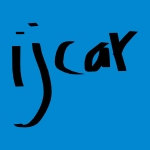 IJCAR-2010-BackesB #higher-order #logic
IJCAR-2010-BackesB #higher-order #logic- Analytic Tableaux for Higher-Order Logic with Choice (JB, CEB), pp. 76–90.
 CASE-2009-SinghR #behaviour #problem
CASE-2009-SinghR #behaviour #problem- The Potluck Problem with consumers’ choice behavior (NS, SR), pp. 328–333.
 DAC-2009-ShojaeiGBGSH #composition #heuristic #multi #runtime
DAC-2009-ShojaeiGBGSH #composition #heuristic #multi #runtime- A parameterized compositional multi-dimensional multiple-choice knapsack heuristic for CMP run-time management (HS, AHG, TB, MG, SS, RH), pp. 917–922.
 ITiCSE-2009-Radenski #learning
ITiCSE-2009-Radenski #learning- Freedom of choice as motivational factor for active learning (AR), pp. 21–25.
 PLDI-2009-AnselCWOZEA #algorithm #compilation #named
PLDI-2009-AnselCWOZEA #algorithm #compilation #named- PetaBricks: a language and compiler for algorithmic choice (JA, CPC, YLW, MO, QZ, AE, SPA), pp. 38–49.
 CHI-2009-DiefenbachH
CHI-2009-DiefenbachH- The “Beauty Dilemma”: beauty is valued but discounted in product choice (SD, MH), pp. 1419–1426.
 CHI-2009-HuangHTNMMR #case study #chat #communication #social
CHI-2009-HuangHTNMMR #case study #chat #communication #social- Of social television comes home: a field study of communication choices and practices in tv-based text and voice chat (EMH, GH, JT, AN, NM, CJM, GR), pp. 585–594.
 SIGIR-2009-OulasvirtaHS
SIGIR-2009-OulasvirtaHS- When more is less: the paradox of choice in search engine use (AO, JPH, BS), pp. 516–523.
 ICSE-2009-RamasubbuB #analysis #empirical #maturity #process
ICSE-2009-RamasubbuB #analysis #empirical #maturity #process- The impact of process choice in high maturity environments: An empirical analysis (NR, RKB), pp. 529–539.
 CADE-2009-Rinard #proving #reasoning
CADE-2009-Rinard #proving #reasoning- Integrated Reasoning and Proof Choice Point Selection in the Jahob System — Mechanisms for Program Survival (MCR), pp. 1–16.
 ASE-2008-EgyedLF #consistency #design #generative #modelling #nondeterminism #uml
ASE-2008-EgyedLF #consistency #design #generative #modelling #nondeterminism #uml- Generating and Evaluating Choices for Fixing Inconsistencies in UML Design Models (AE, EL, AF), pp. 99–108.
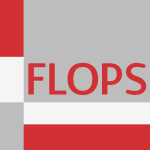 FLOPS-2008-Lopez-FraguasRS
FLOPS-2008-Lopez-FraguasRS- Rewriting and Call-Time Choice: The HO Case (FJLF, JRH, JSH), pp. 147–162.
 ICALP-A-2008-AzarG #framework #integer #source code #unification
ICALP-A-2008-AzarG #framework #integer #source code #unification- Truthful Unification Framework for Packing Integer Programs with Choices (YA, IG), pp. 833–844.
 CHI-2008-LeongHV #named #question
CHI-2008-LeongHV #named #question- Choice: abidcating or exercising? (TWL, SH, FV), pp. 715–724.
 CHI-2008-WoodruffHA
CHI-2008-WoodruffHA- A bright green perspective on sustainable choices (AW, JH, SA), pp. 313–322.
 CSCW-2008-RaderW
CSCW-2008-RaderW- Influences on tag choices in del.icio.us (EJR, RW), pp. 239–248.
 CAiSE-2008-Godet-BarDR #interactive
CAiSE-2008-Godet-BarDR #interactive- When Interaction Choices Trigger Business Evolutions (GGB, SDC, DR), pp. 144–147.
 CAiSE-2008-KinderenG #reasoning
CAiSE-2008-KinderenG #reasoning- Reasoning about Substitute Choices and Preference Ordering in e-Services (SdK, JG), pp. 390–404.
 EDOC-2008-AmeedeenB #approach #diagrams #modelling #petri net #sequence chart
EDOC-2008-AmeedeenB #approach #diagrams #modelling #petri net #sequence chart- A Model Driven Approach to Represent Sequence Diagrams as Free Choice Petri Nets (MAA, BB), pp. 213–221.
 SIGIR-2008-WuST
SIGIR-2008-WuST- User preference choices for complex question answering (MW, FS, AT), pp. 717–718.
 SAC-2008-RaveendranBG #algorithm #evaluation #realtime #scheduling #trade-off
SAC-2008-RaveendranBG #algorithm #evaluation #realtime #scheduling #trade-off- Evaluation of priority based real time scheduling algorithms: choices and tradeoffs (BKR, SB, SG), pp. 302–307.
 CC-2008-Schwartzbach #compilation #design #how
CC-2008-Schwartzbach #compilation #design #how- Design Choices in a Compiler Course or How to Make Undergraduates Love Formal Notation (MIS), pp. 1–15.
 OSDI-2008-LiCMKRAD #named
OSDI-2008-LiCMKRAD #named- FlightPath: Obedience vs. Choice in Cooperative Services (HCL, AC, MM, MK, LR, LA, MD), pp. 355–368.
 ICALP-2007-BellareR #design
ICALP-2007-BellareR #design- Hash Functions in the Dedicated-Key Setting: Design Choices and MPP Transforms (MB, TR), pp. 399–410.
 IFL-2007-Wallace #parsing
IFL-2007-Wallace #parsing- Partial Parsing: Combining Choice with Commitment (MW), pp. 93–110.
 CHI-2007-XiaoSC #interactive #performance
CHI-2007-XiaoSC #interactive #performance- The role of choice and customization on users’ interaction with embodied conversational agents: effects on perception and performance (JX, JTS, RC), pp. 1293–1302.
 TOOLS-EUROPE-2007-HenrikssonJZA #composition #named #reuse
TOOLS-EUROPE-2007-HenrikssonJZA #composition #named #reuse- Reuseware — Adding Modularity to Your Language of Choice (JH, JJ, SZ, UA), pp. 127–146.
 PPDP-2007-Lopez-FraguasRS #semantics
PPDP-2007-Lopez-FraguasRS #semantics- A simple rewrite notion for call-time choice semantics (FJLF, JRH, JSH), pp. 197–208.
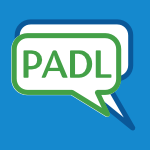 PADL-2007-PodelskiR #abstraction #logic #model checking #named #refinement
PADL-2007-PodelskiR #abstraction #logic #model checking #named #refinement- ARMC: The Logical Choice for Software Model Checking with Abstraction Refinement (AP, AR), pp. 245–259.
 SAC-2007-CaropreseTZ #evaluation #framework #reasoning
SAC-2007-CaropreseTZ #evaluation #framework #reasoning- A framework for prioritized reasoning based on the choice evaluation (LC, IT, EZ), pp. 65–70.
 CSL-2007-CarayolL #infinity #order
CSL-2007-CarayolL #infinity #order- MSO on the Infinite Binary Tree: Choice and Order (AC, CL), pp. 161–176.
 DAC-2006-MokhoffZ #trade-off
DAC-2006-MokhoffZ #trade-off- Tradeoffs and choices for emerging SoCs in high-end applications (NM, YZ), p. 273.
 FM-2006-LundS #diagrams #semantics #sequence chart #uml
FM-2006-LundS #diagrams #semantics #sequence chart #uml- A Fully General Operational Semantics for UML 2.0 Sequence Diagrams with Potential and Mandatory Choice (MSL, KS), pp. 380–395.
 CHI-2006-PearsonHBPN #adaptation #behaviour #how #human-computer #word
CHI-2006-PearsonHBPN #adaptation #behaviour #how #human-computer #word- Adaptive language behavior in HCI: how expectations and beliefs about a system affect users’ word choice (JP, JH, HPB, MJP, CN), pp. 1177–1180.
 CSCW-2006-RiegelsbergerCFP #game studies
CSCW-2006-RiegelsbergerCFP #game studies- Sounds good to me: effects of photo and voice profiles on gaming partner choice (JR, SC, SF, BCP), pp. 159–162.
 ECIR-2006-AwadallahR #multi
ECIR-2006-AwadallahR #multi- Web-Based Multiple Choice Question Answering for English and Arabic Questions (RA, AR), pp. 515–518.
 ICML-2006-GorurJR #infinity
ICML-2006-GorurJR #infinity- A choice model with infinitely many latent features (DG, FJ, CER), pp. 361–368.
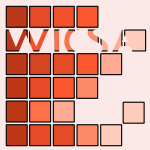 WICSA-2005-TibermacineFS #architecture #component #development #process
WICSA-2005-TibermacineFS #architecture #component #development #process- Preserving Architectural Choices throughout the Component-based Software Development Process (CT, RF, SS), pp. 121–130.
 ICDAR-2005-Mancas-ThillouG #clustering #distance #image
ICDAR-2005-Mancas-ThillouG #clustering #distance #image- Color Text Extraction from Camera-based Images the Impact of the Choice of the Clustering Distance (CMT, BG), pp. 312–316.
 FASE-2005-MooijGR
FASE-2005-MooijGR- Non-local Choice and Beyond: Intricacies of MSC Choice Nodes (AJM, NG, JR), pp. 273–288.
 MLDM-2005-KovalevP #database #image #optimisation
MLDM-2005-KovalevP #database #image #optimisation- Optimising the Choice of Colours of an Image Database for Dichromats (VAK, MP), pp. 456–465.
 SAC-2005-ZhangP #analysis
SAC-2005-ZhangP #analysis- Effort and accuracy analysis of choice strategies for electronic product catalogs (JZ, PP), pp. 808–814.
 CSL-2005-BrattkaS #axiom #sequence
CSL-2005-BrattkaS #axiom #sequence- Computing with Sequences, Weak Topologies and the Axiom of Choice (VB, MS), pp. 462–476.
 FoSSaCS-2004-AbadiGW
FoSSaCS-2004-AbadiGW- Choice in Dynamic Linking (MA, GG, BW), pp. 12–26.
 PPDP-2004-GrecoGSS #datalog #logic programming #multi #programming language #reasoning
PPDP-2004-GrecoGSS #datalog #logic programming #multi #programming language #reasoning- Event choice datalog: a logic programming language for reasoning in multiple dimensions (GG, AG, DS, FS), pp. 238–249.
 ICLP-2004-PetitG #constraints #probability #statistics #testing
ICLP-2004-PetitG #constraints #probability #statistics #testing- Probabilistic Choice Operators as Global Constraints: Application to Statistical Software Testing (MP, AG), pp. 471–472.
 ITiCSE-2003-Sojka03a #agile #evaluation #multi #testing #tex #using
ITiCSE-2003-Sojka03a #agile #evaluation #multi #testing #tex #using- Rapid evaluation using multiple choice tests and TeX (PS), p. 265.
 FASE-2003-Muccini #branch #detection
FASE-2003-Muccini #branch #detection- Detecting Implied Scenarios Analyzing Non-local Branching Choices (HM), pp. 372–386.
 ICML-2003-BaramEL #algorithm #learning #online
ICML-2003-BaramEL #algorithm #learning #online- Online Choice of Active Learning Algorithms (YB, REY, KL), pp. 19–26.
 CADE-2003-Nivelle #axiom #first-order #proving
CADE-2003-Nivelle #axiom #first-order #proving- Translation of Resolution Proofs into Short First-Order Proofs without Choice Axioms (HdN), pp. 365–379.
 CSL-2003-DawarR #fixpoint #logic #symmetry
CSL-2003-DawarR #fixpoint #logic #symmetry- A Fixed-Point Logic with Symmetric Choice (AD, DR), pp. 169–182.
 ITiCSE-2002-Fone #feedback #multi #testing
ITiCSE-2002-Fone #feedback #multi #testing- Improving feedback from multiple choice tests (WF), p. 196.
 KR-2002-BrewkaBB #logic
KR-2002-BrewkaBB #logic- Qualitative Choice Logic (GB, SB, DLB), pp. 158–169.
 UML-2002-BruckerW #case study #design #experience #higher-order #named #ocl
UML-2002-BruckerW #case study #design #experience #higher-order #named #ocl- HOL-OCL: Experiences, Consequences and Design Choices (ADB, BW), pp. 196–211.
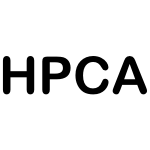 HPCA-2002-YangPFV #design #energy
HPCA-2002-YangPFV #design #energy- Exploiting Choice in Resizable Cache Design to Optimize Deep-Submicron Processor Energy-Delay (SHY, MDP, BF, TNV), pp. 151–161.
 VMCAI-2002-ZuckPK #automation #probability #verification
VMCAI-2002-ZuckPK #automation #probability #verification- Automatic Verification of Probabilistic Free Choice (LDZ, AP, YK), pp. 208–224.
 HT-2001-Cole #interactive #online
HT-2001-Cole #interactive #online- Choice vs. interaction: the case of online Caroline (WC), pp. 69–70.
 LICS-2001-HuuskonenH #logic #on the #order
LICS-2001-HuuskonenH #logic #on the #order- On Definability of Order in Logic with Choice (TH, TH), pp. 167–172.
 DAC-1999-SgroiL #embedded #petri net #synthesis #using
DAC-1999-SgroiL #embedded #petri net #synthesis #using- Synthesis of Embedded Software Using Free-Choice Petri Nets (MS, LL), pp. 805–810.
 HT-1999-Whitehead #hypermedia #network
HT-1999-Whitehead #hypermedia #network- Control Choices and Network Effects in Hypertext Systems (EJWJ), pp. 75–82.
 HCI-CCAD-1999-LiangL #matrix #metric #process #representation
HCI-CCAD-1999-LiangL #matrix #metric #process #representation- Information representation and decision process: effects of measurement scale and shape of decision matrix on preferential choice (SFML, MRL), pp. 62–65.
 CSL-1999-VosV #game studies #logic programming #nash #source code
CSL-1999-VosV #game studies #logic programming #nash #source code- Choice Logic Programs and Nash Equilibria in Strategic Games (MDV, DV), pp. 266–276.
 ITiCSE-1998-FarthingJM #multi #performance
ITiCSE-1998-FarthingJM #multi #performance- Permutational multiple-choice questions: an objective and efficient alternative to essay-type examination questions (DWF, DMJ, DM), pp. 81–85.
 CSL-1998-Hoang #logic
CSL-1998-Hoang #logic- Choice Construct and Lindström Logics (HKH), pp. 105–125.
 JICSLP-1998-GrecoZ #algorithm #datalog
JICSLP-1998-GrecoZ #algorithm #datalog- Greedy Algorithms in Datalog with Choice and Negation (SG, CZ), pp. 294–309.
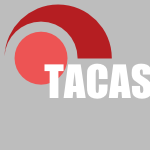 TACAS-1997-Ben-AbdallahL #detection #process #sequence chart
TACAS-1997-Ben-AbdallahL #detection #process #sequence chart- Syntactic Detection of Process Divergence and Non-local Choice inMessage Sequence Charts (HBA, SL), pp. 259–274.
 ICML-1996-Sebag #approach #bias
ICML-1996-Sebag #approach #bias- Delaying the Choice of Bias: A Disjunctive Version Space Approach (MS), pp. 444–452.
 SEKE-1996-RigoutsosD #scalability
SEKE-1996-RigoutsosD #scalability- The Impact of Hashing Function Choice on the Load Balancing in Very Large Dartasets (IR, AD), pp. 301–308.
 FPCA-1995-HughesM
FPCA-1995-HughesM- Making Choices Lazily (JH, AM), pp. 108–119.
 CHI-1995-HillSRF #community #recommendation
CHI-1995-HillSRF #community #recommendation- Recommending and Evaluating Choices in a Virtual Community of Use (WCH, LS, MR, GWF), pp. 194–201.
 TLCA-1995-BerardiBC #axiom
TLCA-1995-BerardiBC #axiom- A realization of the negative interpretation of the Axiom of Choice (SB, MB, TC), pp. 47–62.
 ICALP-1994-GyssensBG #performance
ICALP-1994-GyssensBG #performance- Expressiveness of Efficient Semi-Deterministic Choice Constructs (MG, JVdB, DVG), pp. 106–117.
 SAC-1994-Duben #simulation
SAC-1994-Duben #simulation- The effect of the choice of motional model in the determination of molecular conformation in solution from NMR-NOESY spectra: a simulation study (AJD), pp. 561–565.
 HCI-ACS-1993-LipnerSS #design #interface
HCI-ACS-1993-LipnerSS #design #interface- The Relationship Between Task Structure and Choice of Navigational Aid in Human Computer Interface Design (RSL, GWS, KEOS), pp. 522–527.
 HCI-ACS-1993-MacGregorHL #interface
HCI-ACS-1993-MacGregorHL #interface- The Effect of User Characteristics on Interface Choice (RCM, HH, HTL), pp. 570–574.
 PODS-1992-GrecoZG
PODS-1992-GrecoZG- Greedy by Choice (SG, CZ, SG), pp. 105–113.
 TRI-Ada-C-1992-Youtzy #ada #named
TRI-Ada-C-1992-Youtzy #ada #named- Ada: Still Our First Choice (HYJ), pp. 135–139.
 IWMM-1992-Pique #garbage collection #prolog
IWMM-1992-Pique #garbage collection #prolog- Dynamic Revision of Choice Points during Garbage Collection in Prolog [II/III] (JFP), pp. 330–343.
 ISLP-1991-HidakaKTT #clustering #commit #execution
ISLP-1991-HidakaKTT #clustering #commit #execution- A Static Load Partitioning Method based on Execution Profile for Committed Choice Languages (YH, HK, JT, HT), pp. 470–484.
 LICS-1991-CamilleriW
LICS-1991-CamilleriW- CCS with Priority Choice (JC, GW), pp. 246–255.
 JICSCP-1988-TrehanW88 #commit #logic #nondeterminism #parallel #parsing
JICSCP-1988-TrehanW88 #commit #logic #nondeterminism #parallel #parsing- A Parallel Chart Parser for the Committed Choice Non-Deterministic Logic Languages (RT, PFW), pp. 212–232.
 ICLP-1987-Maher87 #logic #semantics #source code
ICLP-1987-Maher87 #logic #semantics #source code- Logic Semantics for a Class of Committed-Choice Programs (MJM), pp. 858–876.
 ICLP-1987-Tamaki87 #compilation #prolog
ICLP-1987-Tamaki87 #compilation #prolog- Stream-Based Compilation of Ground I/O PROLOG into Committed-Choice Languages (HT), pp. 376–393.
 ESOP-1986-DahlhausM #programming language
ESOP-1986-DahlhausM #programming language- The Choice of Programming Primitives for SETL-Like Programming Languages (ED, JAM), pp. 160–172.
 ESOP-1986-Kaplan #algebra #nondeterminism #proving
ESOP-1986-Kaplan #algebra #nondeterminism #proving- Rewriting with a Nondeterministic Choice Operator: From Algebra to Proofs (SK), pp. 351–374.
 ICLP-1986-Levy86a #execution #memory management
ICLP-1986-Levy86a #execution #memory management- Shared Memory Execution of Committed-choice Languages (JL), pp. 298–312.
 ICLP-1986-Voda86 #logic programming
ICLP-1986-Voda86 #logic programming- Choices in, and Limitations of, Logic Programming (PJV), pp. 615–623.
 SLP-1986-Crammond86 #execution #nondeterminism
SLP-1986-Crammond86 #execution #nondeterminism- An Execution Model for Committed-Choice Non-Deterministic Languages (JAC), pp. 148–158.
 VLDB-1984-TayS #database #performance
VLDB-1984-TayS #database #performance- Choice and Performance in Locking for Databases (YCT, RS), pp. 119–128.
 SIGIR-1983-GellerL #information management #user interface
SIGIR-1983-GellerL #information management #user interface- User Interfaces to Information Systems: Choices vs. Commands (VJG, ML), pp. 130–135.
 VLDB-1982-Kent #design
VLDB-1982-Kent #design- Choices in Practical Data Design (WK), pp. 165–180.
 ICALP-1982-Reif #on the #parallel #power of #probability
ICALP-1982-Reif #on the #parallel #power of #probability- On the Power of Probabilistic Choice in Synchronous Parallel Computations (JHR), pp. 442–450.
 POPL-1981-LehmannR #distributed #on the #problem #symmetry
POPL-1981-LehmannR #distributed #on the #problem #symmetry- On the Advantages of Free Choice: A Symmetric and Fully Distributed Solution to the Dining Philosophers Problem (DJL, MOR), pp. 133–138.
 VLDB-1975-WinslowL
VLDB-1975-WinslowL- Optimal Choice of Data Restructuring Points (LEW, JCL), pp. 353–363.
 POPL-1975-Schwartz #automation #data type
POPL-1975-Schwartz #automation #data type- Automatic Data Structure Choice in a Language of Very High Level (JTS), pp. 36–40.
 SOSP-1971-Rodriguez-Rosell #behaviour #how #parametricity
SOSP-1971-Rodriguez-Rosell #behaviour #how #parametricity- Experimental Data on How Program Behavior Affects the Choice of Scheduler Parameters (JRR), pp. 156–163.
 PLDI-2015-DingAVSOA #algorithm
PLDI-2015-DingAVSOA #algorithm CSCW-2015-Tufekci #algorithm
CSCW-2015-Tufekci #algorithm HIMI-IKC-2015-MatsudaOHT #analysis #automation #generative #multi #problem #testing #using
HIMI-IKC-2015-MatsudaOHT #analysis #automation #generative #multi #problem #testing #using RecSys-2015-GrausW #elicitation #experience #user interface
RecSys-2015-GrausW #elicitation #experience #user interface RecSys-2015-WaymanM
RecSys-2015-WaymanM HT-2014-Santos-NetoPAR #data flow #on the #optimisation
HT-2014-Santos-NetoPAR #data flow #on the #optimisation ICALP-v2-2014-CooperER #distributed #power of
ICALP-v2-2014-CooperER #distributed #power of CHI-2014-ChiravirakulP #question
CHI-2014-ChiravirakulP #question CHI-2014-HsuYYHCB #persuasion
CHI-2014-HsuYYHCB #persuasion CHI-2014-LoeppHZ #collaboration #elicitation #recommendation
CHI-2014-LoeppHZ #collaboration #elicitation #recommendation DUXU-ELAS-2014-VilarDRNV #artificial reality #case study #using
DUXU-ELAS-2014-VilarDRNV #artificial reality #case study #using HIMI-AS-2014-KoyamaYKT #named
HIMI-AS-2014-KoyamaYKT #named SCSM-2014-WhittyDCH #image #online
SCSM-2014-WhittyDCH #image #online ICPR-2014-OsogamiK
ICPR-2014-OsogamiK SIGIR-2014-KellyRT #constraints #information retrieval #research
SIGIR-2014-KellyRT #constraints #information retrieval #research SIGIR-2014-KellyRT14a #constraints #information retrieval #research
SIGIR-2014-KellyRT14a #constraints #information retrieval #research SAC-2014-PatanaikZK #estimation #parametricity #simulation
SAC-2014-PatanaikZK #estimation #parametricity #simulation OSDI-2014-VenkataramanPAFS #clustering #power of #scheduling
OSDI-2014-VenkataramanPAFS #clustering #power of #scheduling DocEng-2013-PinkneyBB #readability
DocEng-2013-PinkneyBB #readability ITiCSE-WGR-2013-SandersACEGJLMP #multi #repository
ITiCSE-WGR-2013-SandersACEGJLMP #multi #repository CHI-2013-RonenRJT #how #question
CHI-2013-RonenRJT #how #question CSCW-2013-GaoHZ #how #network #social
CSCW-2013-GaoHZ #how #network #social DUXU-WM-2013-ShenP #performance
DUXU-WM-2013-ShenP #performance CIKM-2013-ZhangLL #performance #privacy #robust #streaming
CIKM-2013-ZhangLL #performance #privacy #robust #streaming SAT-2013-DellertZK #interactive #named
SAT-2013-DellertZK #interactive #named DATE-2012-Al-HashimiM #framework #hardware #question #verification
DATE-2012-Al-HashimiM #framework #hardware #question #verification DATE-2012-SuriBE #approach #multi #problem #scalability
DATE-2012-SuriBE #approach #multi #problem #scalability FoSSaCS-2012-PetersN #encoding #question
FoSSaCS-2012-PetersN #encoding #question LATA-2012-GeffertGP #automaton
LATA-2012-GeffertGP #automaton CHI-2012-TangHS #social
CHI-2012-TangHS #social CHI-2012-ZhuHL #comprehension #online #social
CHI-2012-ZhuHL #comprehension #online #social AdaEurope-2012-PoonCT #classification
AdaEurope-2012-PoonCT #classification ICSE-2012-YskoutSJ #architecture #question #security
ICSE-2012-YskoutSJ #architecture #question #security LICS-2012-Herbelin #logic #proving
LICS-2012-Herbelin #logic #proving DAC-2011-Singh #challenge
DAC-2011-Singh #challenge CSEET-2011-BrownNOKL #game studies
CSEET-2011-BrownNOKL #game studies ICPC-J-2009-PoonTTK11 #category theory #experience #identification #testing
ICPC-J-2009-PoonTTK11 #category theory #experience #identification #testing CHI-2011-BrumbyDJG #how #performance
CHI-2011-BrumbyDJG #how #performance CHI-2011-LeeKF #behaviour #design #mining #persuasion
CHI-2011-LeeKF #behaviour #design #mining #persuasion CHI-2011-LelisH #how #online #people #rating
CHI-2011-LelisH #how #online #people #rating CSCW-2011-AmesGKS #comprehension #social
CSCW-2011-AmesGKS #comprehension #social SIGAda-2011-Rogers #safety
SIGAda-2011-Rogers #safety ICEIS-v1-2011-YamaguchiDF #guidelines #process #visualisation
ICEIS-v1-2011-YamaguchiDF #guidelines #process #visualisation ICEIS-v2-2011-FanLL #performance #set
ICEIS-v2-2011-FanLL #performance #set ICEIS-v2-2011-LongLG #algorithm #performance #predict #search-based
ICEIS-v2-2011-LongLG #algorithm #performance #predict #search-based ICEIS-v2-2011-MeiJS #fuzzy #logic
ICEIS-v2-2011-MeiJS #fuzzy #logic ICEIS-v3-2011-Liu
ICEIS-v3-2011-Liu SIGIR-2011-LawBH
SIGIR-2011-LawBH SIGIR-2011-YangLSZZ #collaboration #learning #recommendation #using
SIGIR-2011-YangLSZZ #collaboration #learning #recommendation #using GTTSE-2011-ErwigW #calculus #programming
GTTSE-2011-ErwigW #calculus #programming ECSA-2010-BerniniT #architecture
ECSA-2010-BerniniT #architecture QoSA-2010-BirkmeierO #architecture #development #diagrams #empirical #process #uml #usability
QoSA-2010-BirkmeierO #architecture #development #diagrams #empirical #process #uml #usability DAC-2010-GajskiAS #question #synthesis #what
DAC-2010-GajskiAS #question #synthesis #what ICALP-v1-2010-FountoulakisP #multi #power of #random
ICALP-v1-2010-FountoulakisP #multi #power of #random SEFM-2010-DanHC
SEFM-2010-DanHC ICEIS-SAIC-2010-Foster10a #adaptation #guidelines #industrial #multi
ICEIS-SAIC-2010-Foster10a #adaptation #guidelines #industrial #multi RecSys-2010-AlbanesedMPP #modelling #problem #recommendation #social
RecSys-2010-AlbanesedMPP #modelling #problem #recommendation #social RecSys-2010-BollenKWG #comprehension #recommendation
RecSys-2010-BollenKWG #comprehension #recommendation ICSE-2010-KornstaedtR #development #eclipse #float #framework
ICSE-2010-KornstaedtR #development #eclipse #float #framework IJCAR-2010-BackesB #higher-order #logic
IJCAR-2010-BackesB #higher-order #logic CASE-2009-SinghR #behaviour #problem
CASE-2009-SinghR #behaviour #problem DAC-2009-ShojaeiGBGSH #composition #heuristic #multi #runtime
DAC-2009-ShojaeiGBGSH #composition #heuristic #multi #runtime ITiCSE-2009-Radenski #learning
ITiCSE-2009-Radenski #learning PLDI-2009-AnselCWOZEA #algorithm #compilation #named
PLDI-2009-AnselCWOZEA #algorithm #compilation #named CHI-2009-DiefenbachH
CHI-2009-DiefenbachH CHI-2009-HuangHTNMMR #case study #chat #communication #social
CHI-2009-HuangHTNMMR #case study #chat #communication #social SIGIR-2009-OulasvirtaHS
SIGIR-2009-OulasvirtaHS ICSE-2009-RamasubbuB #analysis #empirical #maturity #process
ICSE-2009-RamasubbuB #analysis #empirical #maturity #process CADE-2009-Rinard #proving #reasoning
CADE-2009-Rinard #proving #reasoning ASE-2008-EgyedLF #consistency #design #generative #modelling #nondeterminism #uml
ASE-2008-EgyedLF #consistency #design #generative #modelling #nondeterminism #uml FLOPS-2008-Lopez-FraguasRS
FLOPS-2008-Lopez-FraguasRS ICALP-A-2008-AzarG #framework #integer #source code #unification
ICALP-A-2008-AzarG #framework #integer #source code #unification CHI-2008-LeongHV #named #question
CHI-2008-LeongHV #named #question CHI-2008-WoodruffHA
CHI-2008-WoodruffHA CSCW-2008-RaderW
CSCW-2008-RaderW CAiSE-2008-Godet-BarDR #interactive
CAiSE-2008-Godet-BarDR #interactive CAiSE-2008-KinderenG #reasoning
CAiSE-2008-KinderenG #reasoning EDOC-2008-AmeedeenB #approach #diagrams #modelling #petri net #sequence chart
EDOC-2008-AmeedeenB #approach #diagrams #modelling #petri net #sequence chart SIGIR-2008-WuST
SIGIR-2008-WuST SAC-2008-RaveendranBG #algorithm #evaluation #realtime #scheduling #trade-off
SAC-2008-RaveendranBG #algorithm #evaluation #realtime #scheduling #trade-off CC-2008-Schwartzbach #compilation #design #how
CC-2008-Schwartzbach #compilation #design #how OSDI-2008-LiCMKRAD #named
OSDI-2008-LiCMKRAD #named ICALP-2007-BellareR #design
ICALP-2007-BellareR #design IFL-2007-Wallace #parsing
IFL-2007-Wallace #parsing CHI-2007-XiaoSC #interactive #performance
CHI-2007-XiaoSC #interactive #performance TOOLS-EUROPE-2007-HenrikssonJZA #composition #named #reuse
TOOLS-EUROPE-2007-HenrikssonJZA #composition #named #reuse PPDP-2007-Lopez-FraguasRS #semantics
PPDP-2007-Lopez-FraguasRS #semantics PADL-2007-PodelskiR #abstraction #logic #model checking #named #refinement
PADL-2007-PodelskiR #abstraction #logic #model checking #named #refinement SAC-2007-CaropreseTZ #evaluation #framework #reasoning
SAC-2007-CaropreseTZ #evaluation #framework #reasoning CSL-2007-CarayolL #infinity #order
CSL-2007-CarayolL #infinity #order DAC-2006-MokhoffZ #trade-off
DAC-2006-MokhoffZ #trade-off FM-2006-LundS #diagrams #semantics #sequence chart #uml
FM-2006-LundS #diagrams #semantics #sequence chart #uml CHI-2006-PearsonHBPN #adaptation #behaviour #how #human-computer #word
CHI-2006-PearsonHBPN #adaptation #behaviour #how #human-computer #word CSCW-2006-RiegelsbergerCFP #game studies
CSCW-2006-RiegelsbergerCFP #game studies ECIR-2006-AwadallahR #multi
ECIR-2006-AwadallahR #multi ICML-2006-GorurJR #infinity
ICML-2006-GorurJR #infinity WICSA-2005-TibermacineFS #architecture #component #development #process
WICSA-2005-TibermacineFS #architecture #component #development #process ICDAR-2005-Mancas-ThillouG #clustering #distance #image
ICDAR-2005-Mancas-ThillouG #clustering #distance #image FASE-2005-MooijGR
FASE-2005-MooijGR MLDM-2005-KovalevP #database #image #optimisation
MLDM-2005-KovalevP #database #image #optimisation SAC-2005-ZhangP #analysis
SAC-2005-ZhangP #analysis CSL-2005-BrattkaS #axiom #sequence
CSL-2005-BrattkaS #axiom #sequence FoSSaCS-2004-AbadiGW
FoSSaCS-2004-AbadiGW PPDP-2004-GrecoGSS #datalog #logic programming #multi #programming language #reasoning
PPDP-2004-GrecoGSS #datalog #logic programming #multi #programming language #reasoning ICLP-2004-PetitG #constraints #probability #statistics #testing
ICLP-2004-PetitG #constraints #probability #statistics #testing ITiCSE-2003-Sojka03a #agile #evaluation #multi #testing #tex #using
ITiCSE-2003-Sojka03a #agile #evaluation #multi #testing #tex #using FASE-2003-Muccini #branch #detection
FASE-2003-Muccini #branch #detection ICML-2003-BaramEL #algorithm #learning #online
ICML-2003-BaramEL #algorithm #learning #online CADE-2003-Nivelle #axiom #first-order #proving
CADE-2003-Nivelle #axiom #first-order #proving CSL-2003-DawarR #fixpoint #logic #symmetry
CSL-2003-DawarR #fixpoint #logic #symmetry ITiCSE-2002-Fone #feedback #multi #testing
ITiCSE-2002-Fone #feedback #multi #testing KR-2002-BrewkaBB #logic
KR-2002-BrewkaBB #logic UML-2002-BruckerW #case study #design #experience #higher-order #named #ocl
UML-2002-BruckerW #case study #design #experience #higher-order #named #ocl HPCA-2002-YangPFV #design #energy
HPCA-2002-YangPFV #design #energy VMCAI-2002-ZuckPK #automation #probability #verification
VMCAI-2002-ZuckPK #automation #probability #verification HT-2001-Cole #interactive #online
HT-2001-Cole #interactive #online LICS-2001-HuuskonenH #logic #on the #order
LICS-2001-HuuskonenH #logic #on the #order DAC-1999-SgroiL #embedded #petri net #synthesis #using
DAC-1999-SgroiL #embedded #petri net #synthesis #using HT-1999-Whitehead #hypermedia #network
HT-1999-Whitehead #hypermedia #network HCI-CCAD-1999-LiangL #matrix #metric #process #representation
HCI-CCAD-1999-LiangL #matrix #metric #process #representation CSL-1999-VosV #game studies #logic programming #nash #source code
CSL-1999-VosV #game studies #logic programming #nash #source code ITiCSE-1998-FarthingJM #multi #performance
ITiCSE-1998-FarthingJM #multi #performance CSL-1998-Hoang #logic
CSL-1998-Hoang #logic JICSLP-1998-GrecoZ #algorithm #datalog
JICSLP-1998-GrecoZ #algorithm #datalog TACAS-1997-Ben-AbdallahL #detection #process #sequence chart
TACAS-1997-Ben-AbdallahL #detection #process #sequence chart ICML-1996-Sebag #approach #bias
ICML-1996-Sebag #approach #bias SEKE-1996-RigoutsosD #scalability
SEKE-1996-RigoutsosD #scalability FPCA-1995-HughesM
FPCA-1995-HughesM CHI-1995-HillSRF #community #recommendation
CHI-1995-HillSRF #community #recommendation TLCA-1995-BerardiBC #axiom
TLCA-1995-BerardiBC #axiom ICALP-1994-GyssensBG #performance
ICALP-1994-GyssensBG #performance SAC-1994-Duben #simulation
SAC-1994-Duben #simulation HCI-ACS-1993-LipnerSS #design #interface
HCI-ACS-1993-LipnerSS #design #interface HCI-ACS-1993-MacGregorHL #interface
HCI-ACS-1993-MacGregorHL #interface PODS-1992-GrecoZG
PODS-1992-GrecoZG TRI-Ada-C-1992-Youtzy #ada #named
TRI-Ada-C-1992-Youtzy #ada #named IWMM-1992-Pique #garbage collection #prolog
IWMM-1992-Pique #garbage collection #prolog ISLP-1991-HidakaKTT #clustering #commit #execution
ISLP-1991-HidakaKTT #clustering #commit #execution LICS-1991-CamilleriW
LICS-1991-CamilleriW JICSCP-1988-TrehanW88 #commit #logic #nondeterminism #parallel #parsing
JICSCP-1988-TrehanW88 #commit #logic #nondeterminism #parallel #parsing ICLP-1987-Maher87 #logic #semantics #source code
ICLP-1987-Maher87 #logic #semantics #source code ICLP-1987-Tamaki87 #compilation #prolog
ICLP-1987-Tamaki87 #compilation #prolog ESOP-1986-DahlhausM #programming language
ESOP-1986-DahlhausM #programming language ESOP-1986-Kaplan #algebra #nondeterminism #proving
ESOP-1986-Kaplan #algebra #nondeterminism #proving ICLP-1986-Levy86a #execution #memory management
ICLP-1986-Levy86a #execution #memory management ICLP-1986-Voda86 #logic programming
ICLP-1986-Voda86 #logic programming SLP-1986-Crammond86 #execution #nondeterminism
SLP-1986-Crammond86 #execution #nondeterminism VLDB-1984-TayS #database #performance
VLDB-1984-TayS #database #performance SIGIR-1983-GellerL #information management #user interface
SIGIR-1983-GellerL #information management #user interface VLDB-1982-Kent #design
VLDB-1982-Kent #design ICALP-1982-Reif #on the #parallel #power of #probability
ICALP-1982-Reif #on the #parallel #power of #probability POPL-1981-LehmannR #distributed #on the #problem #symmetry
POPL-1981-LehmannR #distributed #on the #problem #symmetry VLDB-1975-WinslowL
VLDB-1975-WinslowL POPL-1975-Schwartz #automation #data type
POPL-1975-Schwartz #automation #data type SOSP-1971-Rodriguez-Rosell #behaviour #how #parametricity
SOSP-1971-Rodriguez-Rosell #behaviour #how #parametricity









